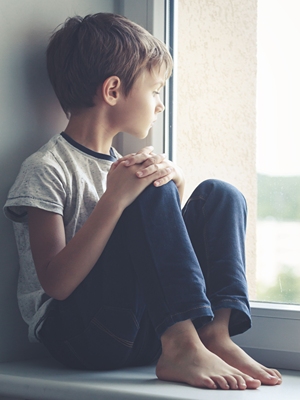Common Signs Your Child May Be Struggling With Grief
Grief can be challenging for children to experience. Recognizing the signs that a child is struggling with grief can help you provide the support they need. This article will help you identify these common signs a child may feel distressed due to the loss of a loved one.
By being attentive and understanding, you can play a crucial role in supporting a grieving child through a difficult time.
Clinginess or Withdrawal
Children grieving a loss might become unusually clingy or, conversely, might withdraw from the people around them. These opposite reactions arise either because they need reassurance that loved ones will not suddenly leave or because they want to prevent themselves from feeling hurt again. These changes in relationships between themselves and adults provide valuable insight into their emotional needs.
Mood Swings
Mood swings are another indication of grief. One minute your child might seem fine, and the next, they could be crying or angry. These rapid changes in emotion are their way of processing complex feelings. Helping a child cope after a loss involves being patient and providing a listening ear.
Feelings of Guilt
Guilt is a commonly felt emotion in the grieving process for adults and children alike. However, children may become highly convinced that they were directly responsible for a loved one’s death which had nothing to do with their behavior. Reassuring them that they are not at fault and discussing their feelings openly can be very helpful.
Issues at School
A sudden decline in academic performance or behavioral problems at school can indicate that your child is having a difficult time dealing with grief. Children might struggle to concentrate or act out in class. Teachers and school counselors can play a critical role in supporting children through loss by keeping an eye on these changes.
Changes in Appetite
A physical symptom of grief is changes in appetite. Your child might eat significantly more or less than usual or no longer enjoy their favorite foods. Monitoring these changes and encouraging regular, balanced meals can help maintain their physical health during this tough period.
Difficulty Sleeping
Children who are struggling with grief often have difficulty sleeping. They might experience nightmares, insomnia, or frequent wakings. Establishing a comforting bedtime routine and ensuring they feel safe can make a big difference. Sometimes, discussing their fears and worries before bed can help ease their minds.
Regressive Behaviors
Grief can cause children to revert to behaviors they had outgrown, such as bedwetting or thumb-sucking. These regressive behaviors are their way of seeking comfort and security. Addressing these behaviors with empathy and without punishment is essential in helping them feel secure.
Recognizing these signs early can make a significant impact. Therapy can positively impact children facing a difficult loss and seeking professional help can provide them with the tools they need to cope. If you notice any of these signs, don’t hesitate to reach out for additional support and guidance.




